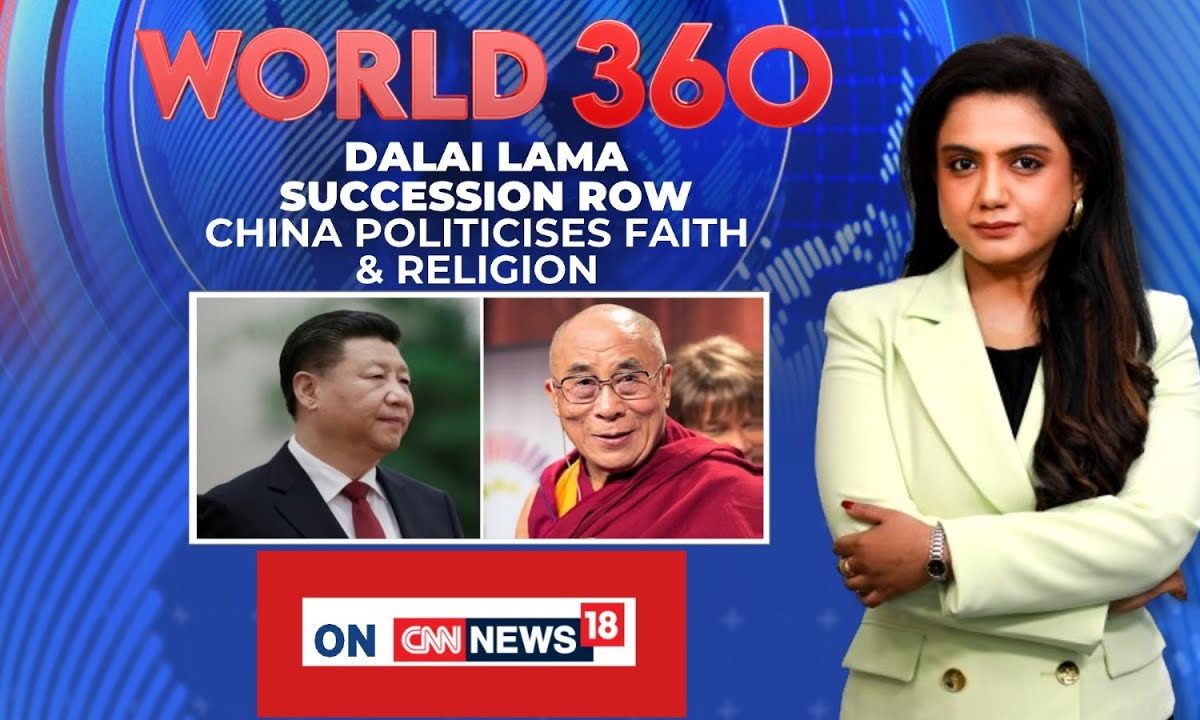

The Dalai Lama has recently reaffirmed his authority over the selection of his successor, a move laden with political implications, especially amidst the ongoing tensions between China and India. This declaration, made ahead of his 90th birthday celebrations, is viewed as a direct message to Beijing, which insists on its right to approve the next Dalai Lama.
In a recorded statement televised at a religious gathering in Dharamshala, India, the Dalai Lama asserted that the Gaden Phodrang Trust, a non-profit organization he founded in 2015, holds the "sole authority" to recognize his reincarnated self. He explicitly stated that "no one else has any such authority to interfere in this matter," effectively rejecting any potential meddling from the Chinese government. This stance reiterates his previous statements suggesting that his successor would be born outside of China.
The succession of the Dalai Lama is a historically significant and politically sensitive issue. Tibetan Buddhists believe that the Dalai Lama is the reincarnation of Chenrezig, the Buddhist god of compassion, and that the Dalai Lama can choose the body into which he is reincarnated. Since the creation of the institution in 1587, there have been 14 Dalai Lamas. The current Dalai Lama, born Lhamo Dhondup, fled Tibet in 1959 after a failed uprising against Chinese rule. He has since lived in exile in India, where he established a democratic Tibetan government-in-exile and advocated for autonomy for the Tibetan people.
China views the Dalai Lama as a separatist and considers the selection of his successor a matter of national sovereignty. Beijing has repeatedly stated that the reincarnation of the Dalai Lama must adhere to Chinese laws and regulations, including being found within China's Tibetan areas and approved by the central government. This position is based on a 2007 law requiring that the selection of all "living Buddhas" occur within Chinese territory. The Chinese government even invokes a selection ritual dating back to 1793 during the Qing dynasty, where names are drawn from a golden urn.
This insistence on control over the selection process has led to fears of a potential leadership vacuum and the possibility of two competing Dalai Lamas: one chosen by Tibetan monks and the other by Beijing. There is already a precedent for this; the 11th Panchen Lama, another high-ranking spiritual figure, disappeared after being recognized by the Dalai Lama, and Beijing appointed another boy in his place.
The Dalai Lama's reaffirmation of his authority has significant implications for the relationship between China and India. India has long been a refuge for Tibetan exiles, and the location of the Dalai Lama and the Tibetan government-in-exile in Dharamshala has been a point of contention between the two nations. China and India share a complex relationship characterized by economic cooperation, border disputes, and strategic competition. While both countries have sought to stabilize their relationship since a border clash in 2020, disagreements over the Line of Actual Control (LAC) and China's growing trade surplus with India remain major challenges.
The Dalai Lama's move is seen by some as a way to ensure the continuation of the Tibetan freedom movement and to give hope to Tibetans inside Tibet. By asserting that his successor will be found and recognized according to Tibetan Buddhist traditions, and by delegating this responsibility to the Gaden Phodrang Trust, the Dalai Lama is attempting to safeguard the future of Tibetan Buddhism and to resist China's attempts to control Tibetan religious affairs.